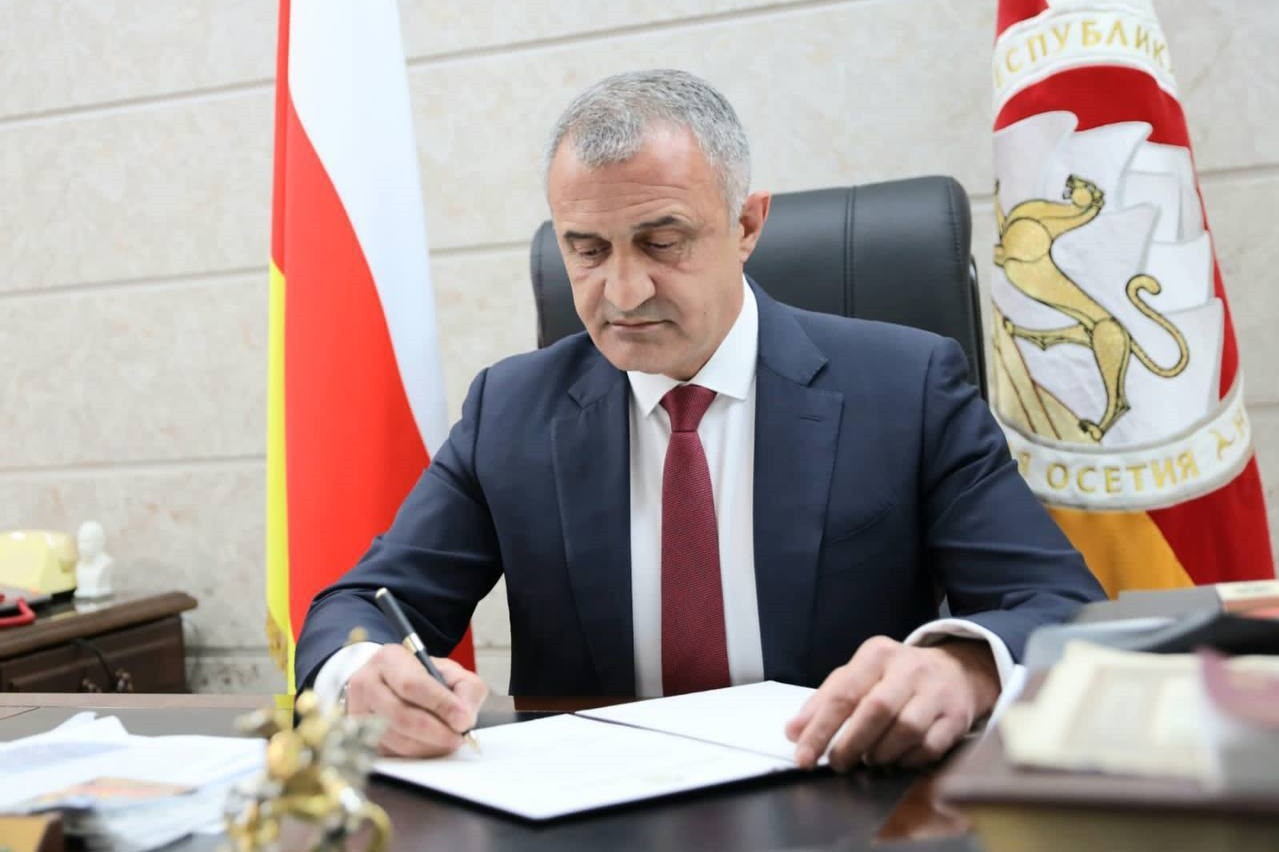
South Ossetian President Anatoly Bibilov has signed a decree ordering a referendum on the annexation of South Ossetia by Russia on 17 July.
In a message on Telegram earlier on Friday evening, the outgoing president said that ‘very soon, our big dream will come true!’
‘Russia and South Ossetia are connected by a common history’, he wrote. ‘It’s not just a partnership or friendship, rather, it is a trusting relationship between two brothers, where the older brother will always understand and support, in word and deed, and the younger brother will honour and help the older one.’
Bibilov announced his intention to unite South Ossetia with Russia ‘in one country’ on 30 March, arguing that Russia, and the ‘Russian world’, defended those loyal to it and ‘stood against Nazism’, a reference to Putin’s claim to have invaded Ukraine in order to ‘de-Nazify’ it. He invoked Russia’s role in ‘defending’ Ossetian people by recognising South Ossetia in 2008 following the August War.
Bibilov made the promise a central part of his presidential campaign.
Alan Gagloyev, who eventually triumphed in the polls, expressed scepticism of the plan during the campaign, accusing Bibilov of exploiting the question of reunification.
According to South Ossetian state-run news agency RES, Gagloyev will likely be inaugurated on 24 May.
Gagloyev has also accused the incumbent president of putting the Russian leadership, which he said was focused on ‘more immediate issues these days’, in an awkward position.
Several days after his victory, Gagloyev told Russian state news agency RIA that he was not opposed to holding a referendum, but only once ‘there is a signal’ from Moscow. He also stated that South Ossetia had held several such referenda previously which were not acted on by Russia.
Russian officials have in the past distanced themselves from the prospect.
According to RES, the central election commission recognised the signatures of 4,105 people calling for the referendum. They reported that the question on the ballot would be: ‘Do you support the unification of the Republic of South Ossetia and Russia?’
South Ossetia is recognised by all but five UN Member States as being part of Georgia, which has vehemently insisted that any referendum would be illegal.
For ease of reading, we choose not to use qualifiers such as ‘de facto’, ‘unrecognised’, or ‘partially recognised’ when discussing institutions or political positions within Abkhazia, Nagorno-Karabakh, and South Ossetia. This does not imply a position on their status.






